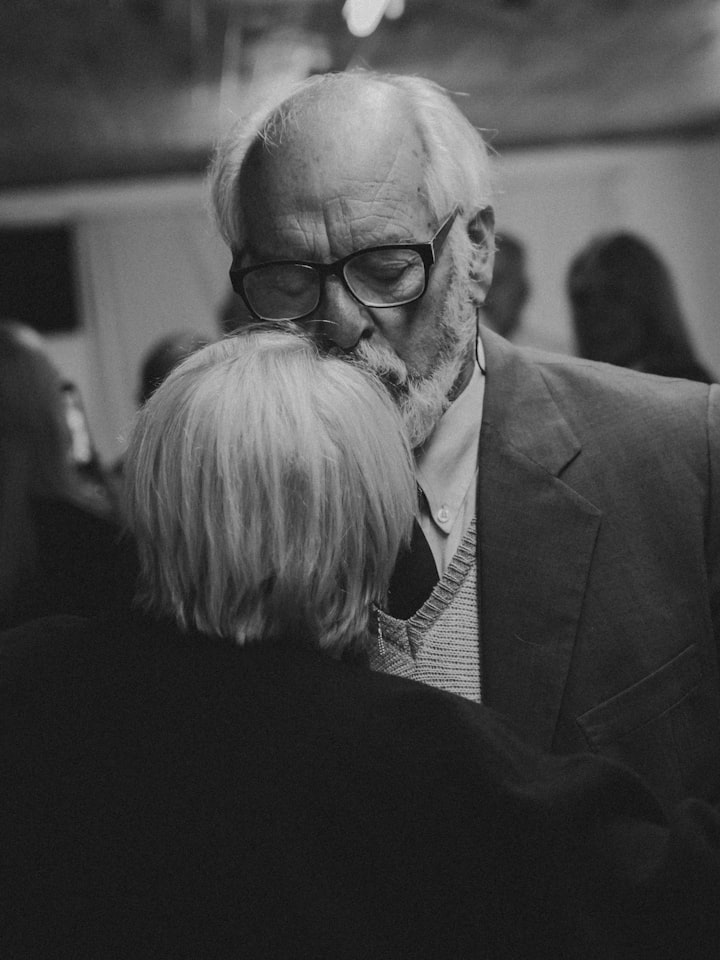Redefining Love: From Falling to Collaborative Artistry
Exploring the Shift from Helpless Passivity to Empowered Relationships

In today's discourse on love, it's essential to reflect on how we discuss this complex and profound emotion. Most often, the English language relies heavily on metaphors, and one of the most prevalent is the notion of "falling in love." However, let's pause and consider what's problematic about this metaphor. When we say we "fall" in love, we conjure an image of a person accidentally stumbling into a manhole, plummeting uncontrollably into the depths below. This metaphor implies that love is accidental and uncontrollable, something that happens to us without our consent.
As a writer , I emphasize the significance of language in shaping our perceptions. I contend that many of the metaphors we employ to describe love are problematic. In our expressions of love, we often use metaphors that equate it with extreme violence or illness, positioning us as victims of unforeseen and inescapable circumstances. Take, for instance, the word "smitten," derived from the word "smite." It can be defined as both a "grievous affliction" and "being very much in love." This association with suffering is notable, considering that "smite" is a term commonly used in the Old Testament to describe the vengeance of an angry God.
How did we come to associate love with such pain and suffering? Why do we talk about this ostensibly positive experience as if we are helpless victims? These are challenging questions that require exploration. To delve into this topic, let's focus on one metaphor in particular: love as madness.
Throughout the history of Western culture, we encounter numerous references equating love with mental illness. From Shakespeare's "Love is merely a madness" to Nietzsche's "There is always some madness in love" and even pop culture references like Beyoncé's "crazy in love," this association between love and madness is pervasive.
My personal experience with love reflects this notion of love as madness. I vividly recall a moment during a turbulent long-distance relationship when my partner stormed out of a room after an argument. Alone in a foreign country with limited resources and no knowledge of the local language, I panicked and burst into tears. Strangely, I viewed this dramatic reaction as evidence that I was experiencing love correctly. I had internalized the idea that love should be accompanied by suffering and irrationality.
Research supports the connection between romantic love and changes in brain chemistry, sometimes resembling symptoms of mental illness. For instance, serotonin levels in individuals newly in love closely resemble those found in people with obsessive-compulsive disorder. Low serotonin levels are also associated with conditions like seasonal affective disorder and depression.
What's fascinating is that these experiences occur within a cultural framework that values lifelong monogamy. We seem to desire both the intensity of love as madness and the endurance of a lifetime commitment. To reconcile these conflicting desires, we must either transform our culture or revise our expectations.
One intriguing solution proposed by linguists Mark Johnson and George Lakoff is to change our metaphors for love. They suggest viewing love as a collaborative work of art. This metaphor entails concepts like effort, compromise, patience, and shared goals, aligning well with our cultural emphasis on long-term romantic commitment. Furthermore, it accommodates various relationship dynamics, including short-term, casual, polyamorous, non-monogamous, and asexual relationships, as it introduces complexity to the experience of loving someone.
In this new metaphor, love becomes an aesthetic experience, characterized by unpredictability, creativity, communication, and discipline. It encompasses both joy and pain, recognizing that each experience of love is unique.
In retrospect, I realize that I can demand more from love. Love is not something that happens to us; rather, it's something we create collaboratively with someone we admire. While it's not easy, this perspective empowers us to communicate openly with our partners, focusing on what we can build together. This version of love doesn't involve winning or losing someone's affection but instead centers on trust and mutual effort.
In conclusion, let's challenge the conventional metaphors that frame love as uncontrollable, painful, and even maddening. Embracing the metaphor of love as a collaborative work of art allows us to shape our own unique experiences of love and prioritize mutual effort, understanding, and trust. Love should not be about enduring suffering but about creating something beautiful together.





Comments (2)
Very well written!
so touching!